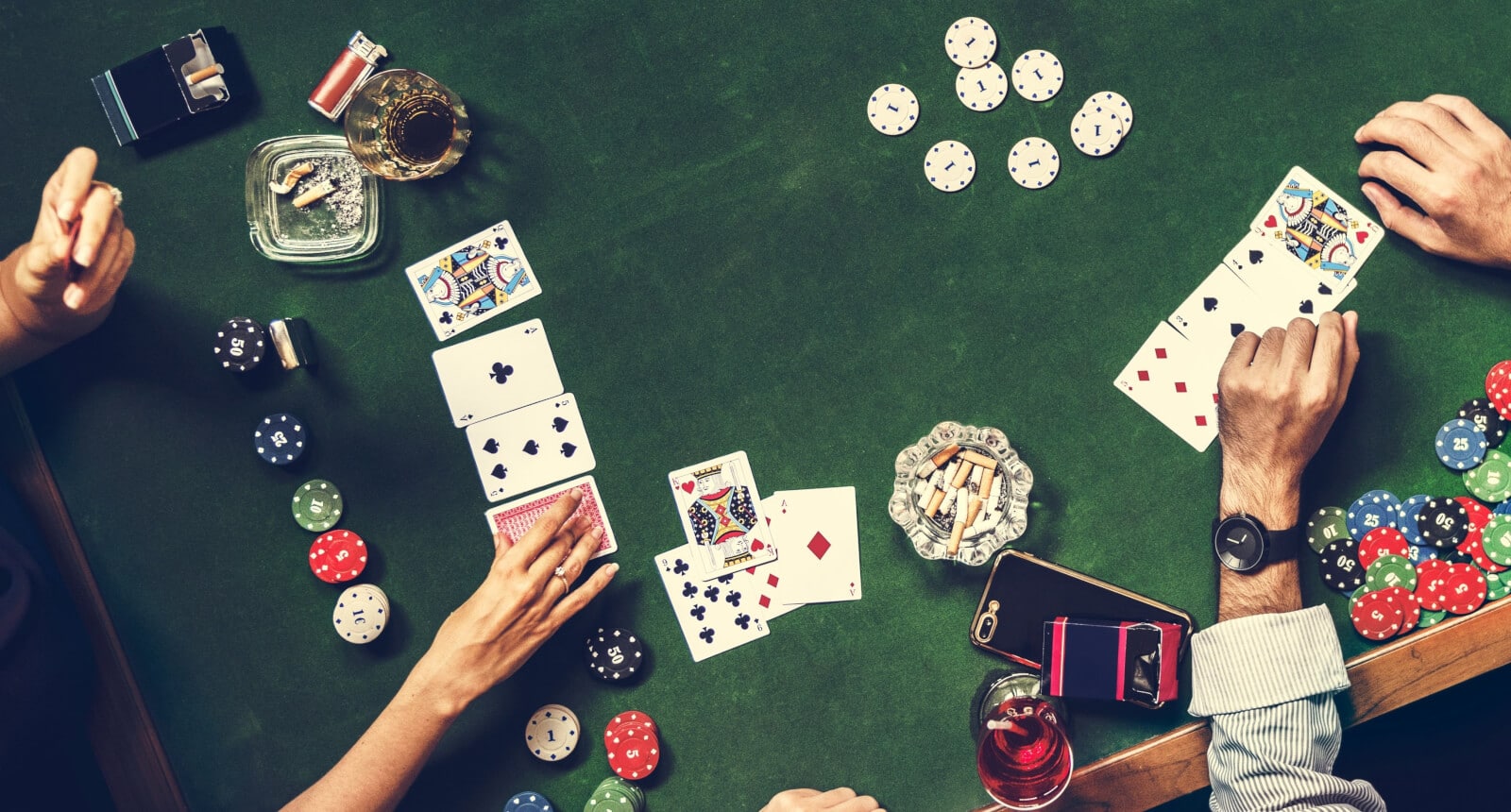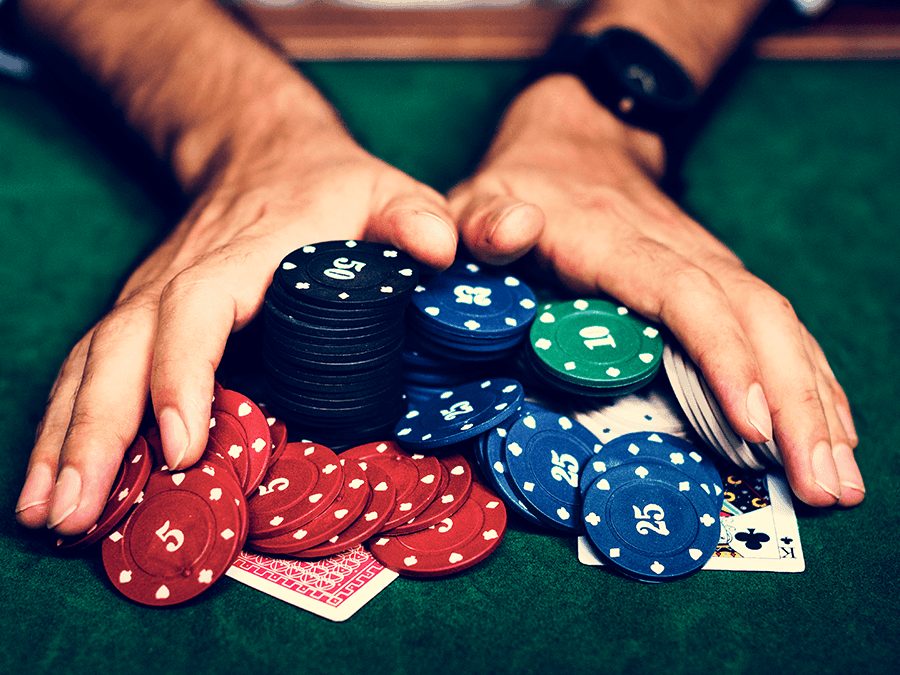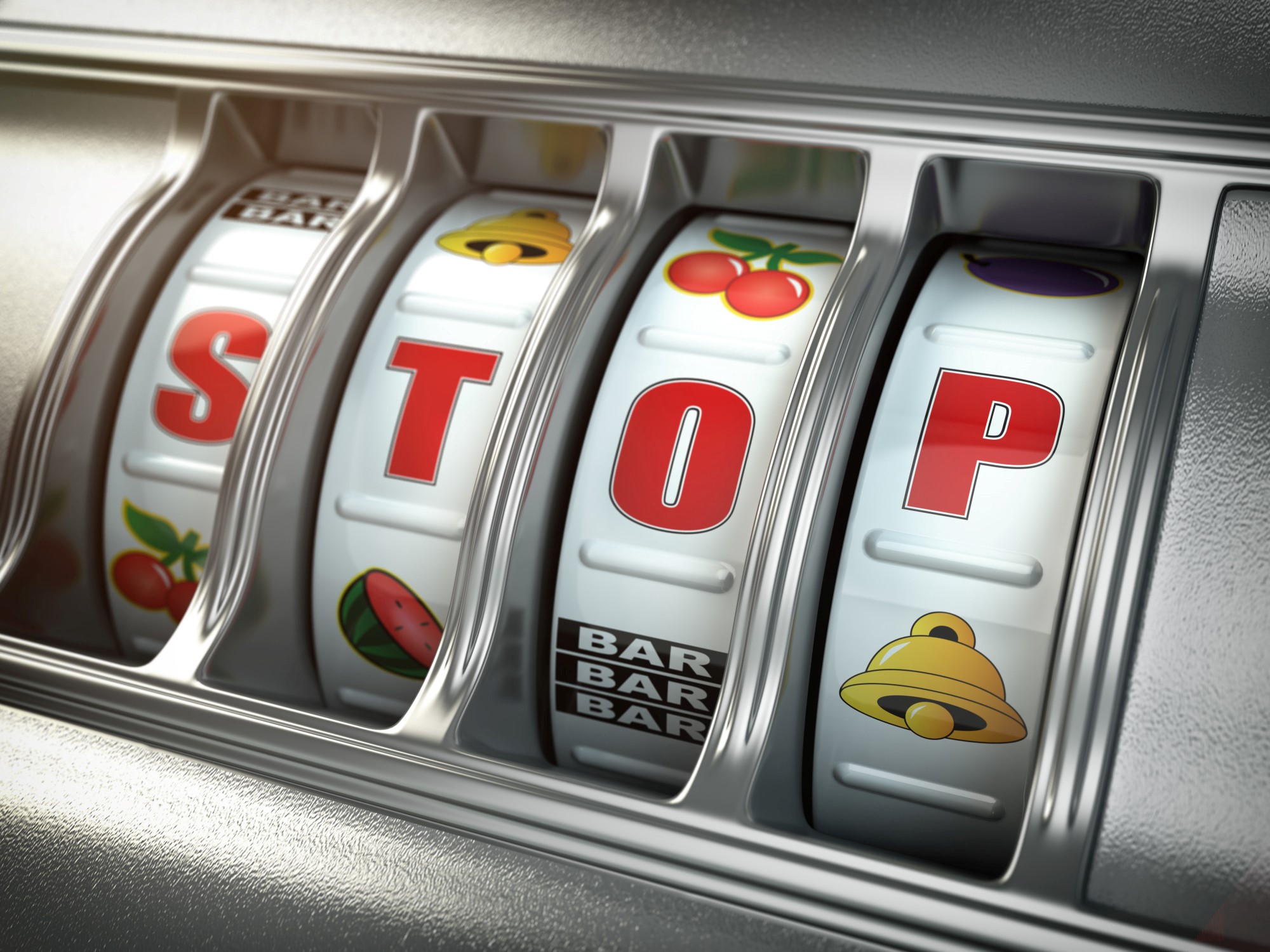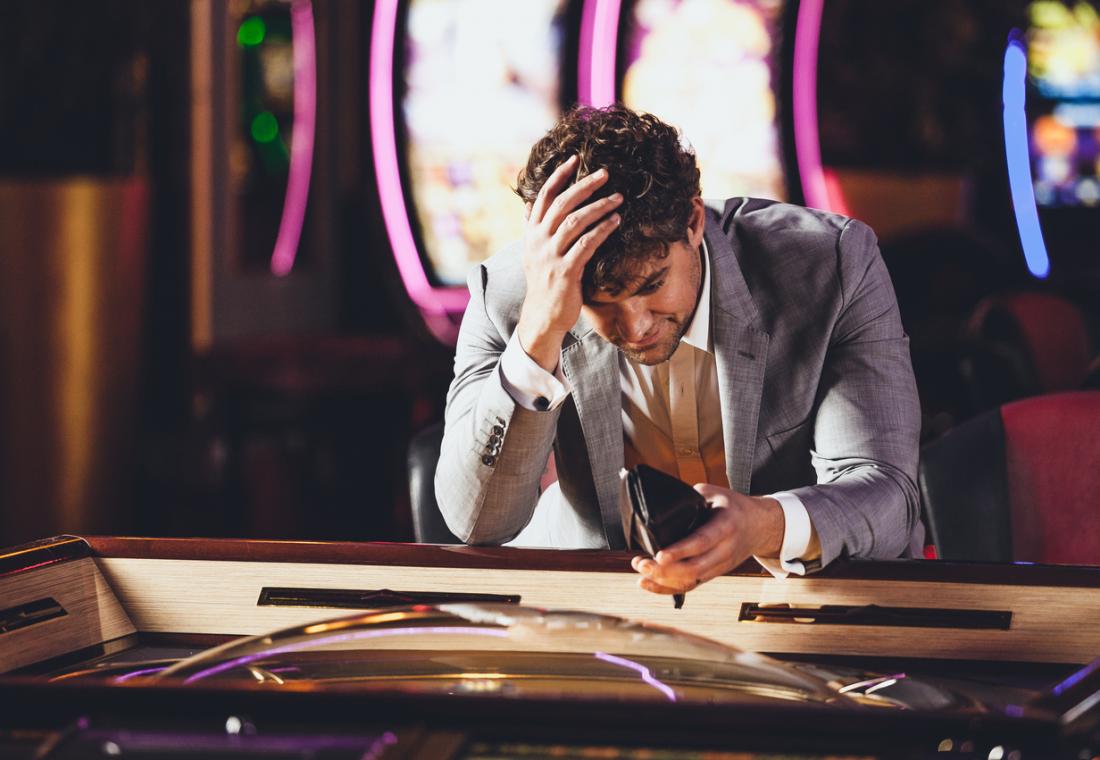Gambling can be a fun and harmless pastime for many people. Whether it's placing a friendly bet on a sports match, buying a lottery ticket, or joining a poker night with friends, the occasional thrill of chance can offer excitement, social connection, and entertainment. But for others, what starts as leisure can spiral into something far more destructive.
Compulsive gambling doesn’t just impact your bank account. It seeps into your mental and physical health, corrodes relationships, and can drive a person deep into emotional isolation and financial ruin. Like food, shopping, or alcohol, gambling activates the brain’s pleasure pathways. The problem arises when the brain becomes hooked—craving more wins, more risks, and more dopamine with each bet placed.
This addictive loop trains the brain to constantly seek the next high, even in the face of mounting losses. With repeated exposure, the brain’s internal reward system is altered, making it increasingly difficult to resist urges or walk away. What was once a form of entertainment becomes a compulsive need, distorting judgment and taking over decision-making processes.
When a person crosses that invisible line, they’re no longer simply gambling too much—they're dealing with a full-blown addiction. And although society is only now beginning to recognize compulsive gambling as a legitimate mental health issue, for many individuals, the damage has already been done.
Spotting the Warning Signs of Gambling Dependency
So how do you know when gambling has moved beyond harmless recreation into a dangerous compulsion? According to the guidance of organizations like Be Gamble Aware, the following signs often indicate a growing problem that shouldn’t be ignored:
-
Spending more time or money gambling than you can realistically afford
-
Struggling to cut back or stop gambling despite efforts to do so
-
Getting into conflicts with friends or family over gambling or finances
-
Losing interest in hobbies and activities that once brought joy
-
Constantly thinking about gambling—past bets, future bets, strategies
-
Lying or hiding your gambling behavior from people close to you
-
Trying to win back lost money by gambling even more (“chasing losses”)
-
Draining your finances completely due to gambling habits
-
Borrowing money, pawning belongings, or skipping bills to fund bets
-
Increasing the amount or frequency of bets to recapture the excitement
-
Neglecting work, school, family, or basic responsibilities due to gambling
-
Experiencing anxiety, irritability, shame, or depression related to gambling
These are not just bad habits—they are warning lights. According to the UK’s National Health Service, people who suffer from gambling addiction also face higher risks of poor mental health, including low self-esteem, chronic stress, and clinical depression.
In more severe cases, gambling addiction can lead to desperate actions like theft, fraud, or financial deceit. These behaviors not only have legal consequences but also strain—or outright destroy—personal relationships. It's also not uncommon for gambling addiction to be accompanied by other dependencies, particularly on alcohol, which can further complicate recovery.
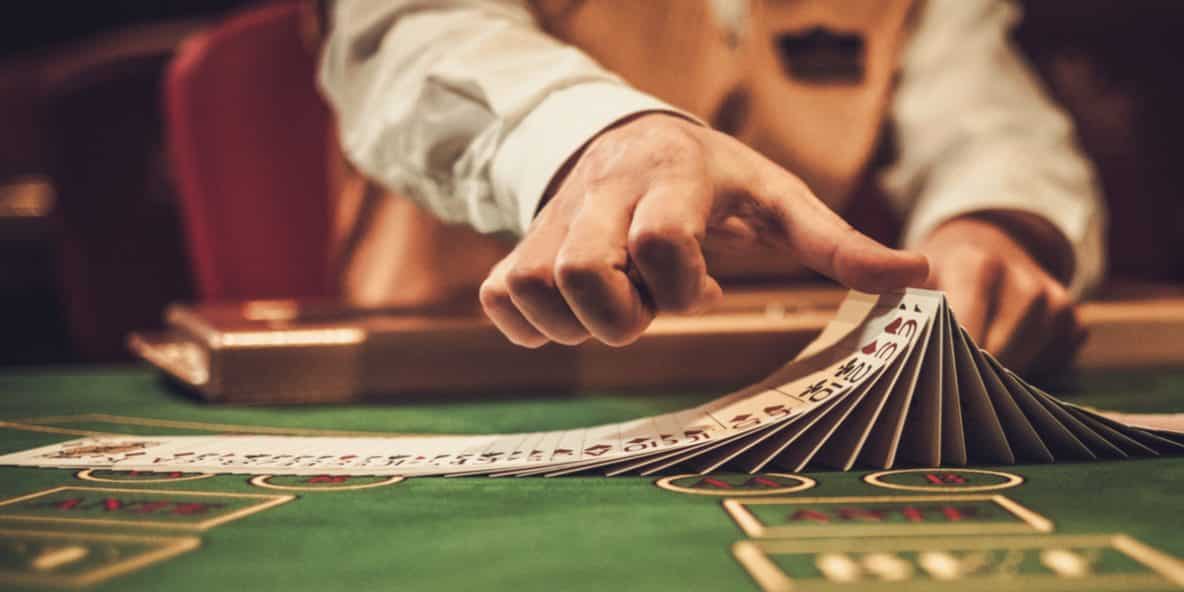
Taking Back Control: Steps to Stop Gambling
If you or someone you care about is caught in the grip of gambling addiction, it’s important to know that recovery is possible. According to studies, about 2.6% of adults in the U.S.—roughly 10 million people—face challenges directly related to gambling. But like any addiction, it can be managed with the right tools, awareness, and support.
Here are seven essential strategies to help break free from gambling and begin the journey toward recovery.
1. Acknowledge and Understand the Problem
Before any real change can happen, you need to name the problem. You can’t solve an issue you’re still pretending doesn’t exist. Understanding gambling addiction means recognizing that it’s more than just a matter of willpower—it’s a legitimate psychological disorder.
The American Psychiatric Association classifies gambling addiction alongside substance use disorders. Some common symptoms of gambling disorder include:
-
Needing to wager increasingly larger sums to feel the same excitement
-
Feeling irritable or anxious when trying to cut back
-
Repeatedly failing to quit despite intentions to stop
-
Obsessing over gambling, even when not actively participating
-
Using gambling as an emotional escape from stress or boredom
-
Gambling more in an attempt to recover lost money
-
Lying to others to cover up gambling activities
-
Experiencing breakdowns in relationships due to gambling
-
Relying on loans or financial support to cover basic needs
If these descriptions hit home, it’s time to stop rationalizing the behavior. Ask yourself honestly—or even better, ask someone you trust—whether gambling has started to control you. The truth might be uncomfortable, but it's the first real step toward freedom.
2. Connect With a Support Group
Once you've admitted there’s a problem, the next move is to seek connection—not isolation. Support groups provide a judgment-free zone where you can speak openly with people who’ve walked a similar path. Many people find strength, perspective, and healing by simply being heard and understood.
Groups like Gamblers Anonymous offer both in-person meetings and online chat communities. These spaces are designed for mutual encouragement and shared coping strategies. While they don't replace professional therapy, they can be a vital part of your recovery toolbox—especially when dealing with the shame and secrecy that often accompany gambling addiction.
You can also reach out to the National Council on Problem Gambling hotline for support by phone or text. They provide not just emotional guidance but also resources to connect you with local groups or treatment providers.
Support groups remind you of a powerful truth: you’re not alone. Others have been where you are, and many of them have rebuilt their lives.
3. Steer Clear of Triggers and Temptation
Seeing gambling for what it is—an addictive behavior—gives you the power to treat it with the same seriousness as drug or alcohol dependence. That means one of the most crucial steps is learning to identify and avoid your specific triggers.
Start by paying close attention to what situations or emotions make you want to gamble. Do you pass a casino on your commute home? Do certain sporting events spark urges to place bets? Is boredom a trigger? Loneliness? Excitement?
Now that you know your triggers, take active steps to avoid them. This might involve:
-
Taking alternate routes to avoid gambling venues
-
Cutting out sports broadcasts or apps that push betting ads
-
Deleting gambling apps and blocking related websites
-
Handing over financial control (e.g., to a partner or trusted family member)
-
Leaving social groups where gambling is common
Yes, it might feel restrictive at first—but think of it like detoxing from a substance. You wouldn’t expect a recovering alcoholic to spend time in bars. Removing access to gambling-related cues is a protective measure, not a punishment.
4. Learn to Delay the Urge
Gambling cravings, much like those associated with drug or alcohol use, can come on strong and unexpectedly. They have a way of convincing you that you must act immediately—that placing a bet right now is the only way to relieve the pressure building inside. But the truth is: every craving has a beginning, a peak, and an end. It won’t last forever, even if it feels like it will.
This is where delay tactics come into play. Instead of giving in right away, train yourself to wait it out.
Begin by observing the craving instead of reacting to it. Ask yourself:
-
What does this craving feel like in my body?
-
What am I thinking right now?
-
What triggered this urge?
-
How long does it actually last?
Just by noticing the craving without acting on it, you start to loosen its grip.
Next, create a toolkit of strategies to ride out the storm. These might include:
-
Calling a trusted friend or family member to talk
-
Taking deep, measured breaths for a few minutes
-
Going for a short walk or doing some stretching
-
Writing down what you’re feeling in a journal
-
Telling yourself: “I can do anything for five minutes.”
The goal isn’t to never feel cravings—it’s to learn that you don’t have to obey them. Every time you postpone gambling, you strengthen your ability to resist, and the power of that craving starts to fade.
5. Replace Gambling With Meaningful Alternatives
Quitting gambling isn't just about stopping a behavior—it’s about filling the void it leaves behind. When you remove a compulsive habit from your life, you need to replace it with something healthier, something that brings joy, purpose, or relief in a way that doesn’t cause harm.
People often turn to gambling to escape stress, cope with boredom, or chase excitement. That’s why identifying positive replacements is so important. Try experimenting with new activities that can serve similar emotional functions, but without the destructive consequences.
Some ideas include:
-
Physical movement: Join a gym, start a morning walk routine, or try group sports or martial arts. Exercise not only improves mood but helps manage urges.
-
Mindfulness practices: Meditation, yoga, or breathwork can reduce anxiety and improve emotional control.
-
Creative expression: Painting, writing, making music, or building something with your hands can redirect your mental energy into something tangible and satisfying.
-
Meaningful connection: Spend more time with people who don’t gamble. Join local clubs, attend community events, or volunteer for causes you care about.
-
Learning something new: Take a course, explore a new language, or dive into a hobby you’ve always been curious about.
Think about the extra money you’re saving by not gambling. Instead of losing it in moments of compulsion, you can invest it in life-enhancing experiences.
6. Reflect on the Consequences You've Faced
Many people in recovery are haunted by a mix of guilt, shame, and regret over their past behavior. While these emotions can be painful, they also have a role to play: they can serve as reminders—a compass that points toward the life you want to reclaim.
When you feel tempted to gamble again, take time to consciously revisit the cost of your addiction. Ask yourself:
-
How much emotional pain have I caused people I love?
-
What did I lose financially—rent, savings, opportunities?
-
What lies have I told to keep my gambling a secret?
Reflecting on these questions can be uncomfortable, but it can also give you clarity and motivation. Keep in mind, though: this isn’t about endlessly beating yourself up. Excessive guilt can backfire and push you back toward the same behavior you’re trying to avoid.
Use your past not as a weight, but as a warning—and let it fuel your commitment to stay on track.
7. Reach Out for Professional Support
If gambling has taken full control of your life, it may not be enough to simply lean on willpower or support groups. Sometimes, the most effective solution is guided, professional treatment.
Licensed therapists and addiction counselors can help you identify the deeper roots of your gambling behavior—whether it's trauma, unresolved emotions, or another co-occurring condition like depression or anxiety. Through evidence-based approaches like Cognitive Behavioral Therapy (CBT) or Motivational Interviewing, you’ll gain tools to challenge distorted thinking, break destructive patterns, and build a healthier, more stable lifestyle.
Professional treatment can also help you develop a relapse prevention plan, reinforce the work you're doing in support groups, and give you a safe space to process emotional setbacks.
Whether through individual therapy, group programs, or residential treatment centers, help is available. The only question is: are you ready to accept it?
Ten Common Lies People with Gambling Addiction Tell
Living with a compulsive gambler often means living with deception. Not because they’re inherently dishonest people—but because addiction rewires the brain to prioritize the behavior at all costs, including truth.
If you’re dealing with someone you suspect has a gambling problem, these are some of the most common lies to watch out for. They serve to justify the behavior, buy more time, and avoid consequences. But recognizing them is the first step to confronting the truth.
#1: “I don’t have a gambling problem.”
This is the classic denial. Even when the evidence is stacked sky-high—drained accounts, missed work, mounting debt—the gambler may still insist there’s no issue. Denial isn’t just about hiding the truth from others; it’s often about refusing to admit it to themselves.
The more fiercely someone denies a problem in the face of obvious damage, the more likely they’re in the deep end of addiction.
#2: “I can quit whenever I want.”
This lie is often served with a defensive tone. The compulsive gambler might even “prove” it by avoiding gambling for a few days—only to relapse just as hard the following week. The truth? If stopping were truly that easy, they would have done it already. Addiction doesn’t obey willpower alone.
#3: “It’s not hurting anyone.”
Nothing could be further from reality. Gambling addiction is often called a family disease because it impacts everyone around the addict. Broken trust, financial loss, emotional strain, and even physical or legal danger can result from one person’s hidden behavior.
Behind every gambler are loved ones carrying the weight of their lies, fears, and consequences.
#4: “I didn’t go gambling.”
When directly asked, a compulsive gambler might look you in the eye and calmly deny everything—even if the evidence is all over their clothes, breath, or credit card statements. Lying about where they were is one of the most reflexive defenses gamblers use, especially when they’re trying to avoid confrontation or accountability.
But confronting the lie in the heat of the moment often backfires. A better strategy is to wait until the gambler is calm and emotionally regulated—when a rational conversation about their behavior might actually land.
#5: “I have my gambling under control.”
This line is particularly dangerous because it offers false reassurance—especially to partners or family members who are clinging to hope that things will get better without intervention.
If someone claims they have it “under control” but continues to drain savings, max out credit cards, or borrow money, their behavior speaks louder than their words. This is not control—it’s denial wrapped in false confidence.
#6: “I didn’t touch our savings.”
Desperation pushes compulsive gamblers to do things they once swore they never would. And dipping into savings—especially family or joint accounts—is sadly very common. They may shuffle money around, hide statements, or invent reasons for the missing funds.
Even if they swear they haven’t touched anything, double-check with the bank. If something feels off, it probably is. Lies about money are often the first major cracks in a gambler’s integrity.
#7: “You won’t believe what happened…”
As the financial and emotional damage builds, so do the stories. Elaborate excuses start pouring out to explain the missing money, the debt collectors, or why rent hasn’t been paid.
Robbery. Lost wallets. Emergency investments. Friends in crisis. The more dramatic and urgent the story sounds, the more likely it’s a cover for gambling losses. Be cautious of any tale that feels just a little too perfectly timed or oddly convenient.
#8: “A friend needed money.”
This is a timeless deflection. It tugs at your empathy and shifts suspicion elsewhere. Of course, friends occasionally do need help. But when someone with a gambling addiction uses this line regularly, especially around the time money goes missing, it’s almost always a lie.
They count on your kindness and guilt to cover for their behavior. That’s why it’s important to gently—but firmly—hold them accountable.
#9: “You can trust me now.”
Trust isn’t something that returns with a promise. It’s earned through consistent action over time. Compulsive gamblers often say this phrase after a major fallout—right when they need forgiveness, money, or access to finances again.
As tempting as it is to believe them, don’t rely on words alone. Require accountability. Require transparency. Require proof that change is happening.
#10: “I’ll never gamble again.”
This one usually comes after rock bottom: a job loss, an arrest, a ruined relationship. In that moment of pain and panic, the gambler may sincerely believe the promise they’re making. But unless it’s followed by actual treatment and behavior change, the cycle is likely to repeat.
If someone tells you they’re done gambling, ask them: “What’s your plan?” Words without action are just another form of avoidance.
When the Lies Stop: The Real Path Forward
You can’t control someone else’s choices—but you can control your boundaries. If you’re living with a compulsive gambler, you’ve likely been caught in their web of deception, heartbreak, and hope more times than you can count.
But the path to healing begins when you stop enabling the lies and start protecting your own peace.
Here’s what that might look like:
-
Refusing to cover their debts or make excuses to others
-
Setting clear consequences for broken promises
-
Attending Gam-Anon or similar support groups for loved ones
-
Encouraging—but not forcing—treatment and accountability
-
Separating yourself emotionally from the chaos when necessary
Remember, change only comes when the gambler chooses it for themselves. You can’t save them with love alone. But you can reclaim your own stability, your own truth, and your own future.
Hope in Recovery
The good news? Gambling addiction is treatable. With consistent support, therapy, and involvement in recovery communities like Gamblers Anonymous, many individuals have not only stopped gambling—they’ve rebuilt lives that once seemed shattered beyond repair.
The same person who once lied, manipulated, and ran from consequences can learn to live with honesty, self-respect, and accountability. Recovery is never perfect or linear—but it is possible.
And for those who’ve lived alongside the addiction, healing is possible too. You’re not alone. Help is out there—for you, and for the person you still care about.

